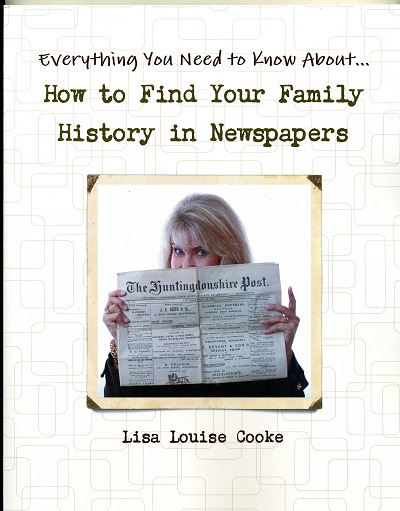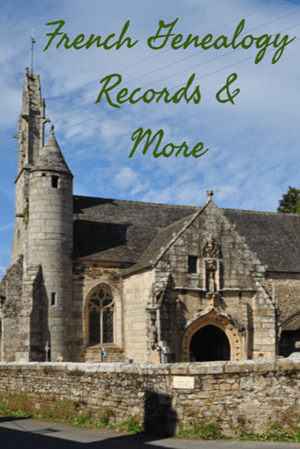by Sunny | Apr 13, 2018 | 01 What's New, FamilySearch, Records & databases |
Nearly 2.5 million French genealogy records are among the free collections now available online at FamilySearch.org. Also: German church records, Dutch civil registrations and 3 free digital archives for researching U.S. ancestors in CT, GA and NJ.
Free French genealogy records
France, Brittany, Church and Civil Records, 1521-1896 is a new collection of more than 2.4 million birth, marriage, and death records from Ille-et-Vilaine and Côtes-d’Armor. It’s now free to search on the Genealogy Giant FamilySearch.org. In addition to knowing the name of the person you’re searching for, the site also recommends you have a good idea of at least one additional piece of information about them, such as a birthplace, birth date or parents’ names, so you can more confidently distinguish your relatives from others with similar names.
Click here for links to resources on reading French-language records—and keep reading for a link to learn more about getting and using your free guest account at FamilySearch.org.
Chile civil registrations
Nearly 360,000 indexed names have been added to Chile, Civil Registration, 1885-1932, a collection of indexed and imaged birth, marriage, death and other records created by civil registration offices in Chile. Some of the 1.6 million record images have been indexed, so you can search for ancestors by name. More names are being added on an ongoing basis, so keep checking back—or browse the records yourself if you know the approximate time and place to find your family’s names in them.
German church records
Another new (and free, as always on FamilySearch.org) collection is 250 years’ worth of German Catholic birth, marriage and death records: Germany, Rhineland, Diocese of Trier, Catholic Church Records, 1704-1957. Important note: the collection description states that “These images are available to view at Family History Centers…If possible, visit your nearest Family History Center to view the images.” Click here to find a Family History Center near you—and contact them to confirm their hours and access to the records you want.
Netherlands civil registration
More than 200,000 free records have been added to an existing FamilySearch collection of over 6 million records, Netherlands, Noord-Holland, Civil Registration, 1811-1950. In addition to births, marriages, and deaths, you’ll also find 10-year indexes, marriage intentions, marriage proclamations, and marriage supplements! According to the collection description, that date range isn’t comprehensive: “The collection covers the years 1811 to 1950, but the exact years vary within each municipality and record type.”
3 free digital archives for researching U.S. ancestors
Connecticut. Connecticut State Library Announces 25 Historic Newspaper Titles to be Digitized. “The Connecticut State Library is pleased to announce that with a third grant from the National Endowment for the Humanities, 25 newspaper titles have been selected to be digitized for the Connecticut Digital Newspaper Project (CDNP), and made freely available online. “
Georgia. The Digital Library of Georgia has announced new digital collections from Spelman College and Morehouse College. Among the digitized resources for these historically black colleges are the Spelman Messenger (1885-2016), “featuring school news, articles by students, creative writings, book reviews, alumni notes and obituaries;” Spelman Catalogs and Bulletins since 1881, Spelman yearbooks (1951-2007) and Morehouse College yearbooks back to 1923. College yearbooks, newspapers and even the annual administrative documents about the degree programs, faculty and campus life, and tuition can give a unique insight into your college-attending forebears.
New Jersey. The Newark Public Library has announced the new Newark Public Library Digital Archive with “over 50 collections and 23,000 items related to African American, Latino, and Newark history.” Documents include genealogically-rich sources such as photographs, city directories, newspapers, and maps. According to the announcement, “Highlights include thousands of photos of Newark Public Schools, the Samuel Berg collection of Newark Street photos, Newark maps and atlases, Newark area newspapers (including the Newark Herald, City News, and La Tribuna!) & so much more!”
Access French genealogy records and others on FamilySearch.org
FamilySearch is the Genealogy Giant that’s always free to use—so everyone should! Our best tip is to create a free guest login on the site so you can maximize your access to all its resources. Click here to read more about how to use that guest login on FamilySearch.org–and more about what kinds of resources you’ll find at your fingertips there. And did we mention that it’s FREE?
Disclosure: This article contains affiliate links and Genealogy Gems will be compensated if you make a purchase after clicking on these links (at no additional cost to you). Thank you for supporting Genealogy Gems!
by Sunny | Dec 10, 2017 | 01 What's New, Beginner, FamilySearch, Freebies |
A free FamilySearch account gives you access to more historical records and customized site features than you’ll see if you don’t log in at this free genealogy website. Here’s why you should get a free FamilySearch account and log in EVERY time you visit the site.
This post is part of our ongoing commitment to help you get the most out of the “Genealogy Giants:”
In this post, I comment on a recent announcement from the free giant everyone should be using: FamilySearch.org.
Why you should have (and use!) a free FamilySearch account
FamilySearch.org has always allowed free public use of its site. But beginning on December 13, 2017, the site will now actively prompt visitors to register for a free FamilySearch account or to log in with their existing accounts. Anyone can continue to search the catalog and user-submitted genealogies, explore over 350,000 digitized books, learn from the Wiki and the learning center, and even view user-contributed photos and stories. But by requesting you to log in, FamilySearch wants to remind you that this is your path to even more free records and services on the site.
Here are my top three reasons to have and use a free FamilySearch account:
1. Access more free historical records on FamilySearch.
We’ve talked a lot in recent months about best strategies for accessing digitized and off-line historical records at FamilySearch. Some of the digitized records on FamilySearch are there courtesy of a partner organization, which may restrict record access to those who log in on the site.
One woman had an “ah-ha” moment of realization after reading FamilySearch’s announcement. She posted in the comments, “Though I have had a free account for some time, I did not realize that FamilySearch was not giving me full access to information in record searches just because I had not logged in. Maybe I need to redo my past searches as a logged-in account holder.”
2. Participate in the global Family Tree.
As I more fully describe in my quick reference guide, Genealogy Giants: Comparing the 4 Major Websites, FamilySearch’s online family tree is different than the tree systems used at the other major family history websites. Instead of creating your own personal tree, you participate in a collaborative, unified family tree of the world. As a logged-in visitor, you can enter your information, then that of your parents and their parents, etc. until you connect to deceased individuals who are already on the tree. (Information about living individuals is always privacy-protected.) Then you may, with other descendants, contribute what you to know to an ancestor’s profile.
Anyone may make changes to these public profiles, which may at times be frustrating. But it also allows for more focused collaboration. This is a great place to see a virtual compilation of others’ research on particular ancestors without having to search others’ personal trees individually, as you do on other sites (remember to look for their source citations and verify what others say). The Family Tree on FamilySearch is also a great place to digitally archive family documents and photos where other researchers may see and appreciate them for free. As you can see in the screenshot below, logging in also helps you see how others have identified the folks you see in your search results:
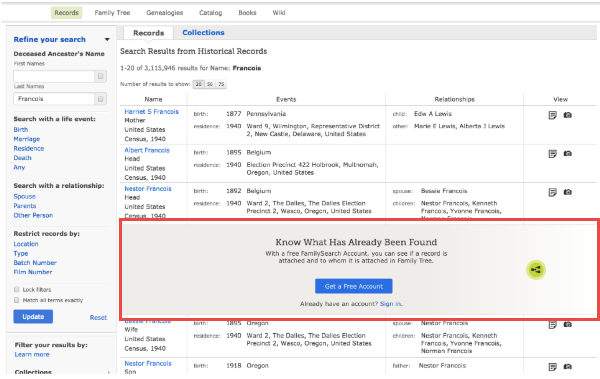
3. Get customized help.
Those who log in with a free FamilySearch account have access to one-on-one assistance through the website. If you have a question about using the site, accessing records, finding additional records about your ancestors, or even how to understand the records you’re looking at, you can email or call a live support person for help. Your login also sets you up to receive customized alerts and seasonal messages (like “Did you know your ancestor fought in the War of 1812?”) and a dashboard experience with at-a-glance reminders of record hints awaiting your review, where you left off in your last online session, tips about what to do next, and more. Here’s what the dashboard looks like:

How to get (or recover) a free FamilySearch account
See Registering to use FamilySearch.org for information about creating a free account. FamilySearch accounts have always been free and, the site assures us, will continue to be free. You will need to provide your first and last name, a username, a password, and an email or mobile phone number.
According to FamilySearch, your login and other personal information:
- enables collaboration in the Family Tree and Memories areas of the site (you control how much information is shared)
- “allows you to send in-system messages to other users without revealing your personal identity or email address”
- “allows FamilySearch to send you emails and newsletters (you can specify how many emails, if any, you receive)”
- enables communication when you contact their online support team for help
- will not be shared “with any third party without your consent”
If you’ve already got a FamilySearch account but have forgotten your username, click here. If you’ve forgotten your password, click here.
Genealogy Gems Brings You Genealogy Giants
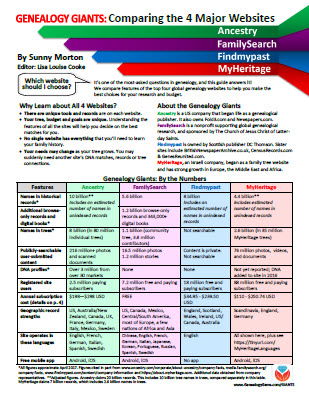 Each of the “Genealogy Giants” has so much to offer family historians around the world! But it’s hard to keep them straight, compare their top features, and get the most out of them without some inside help. That’s why we published the must-have quick reference guide, Genealogy Giants: Comparing the 4 Major Websites, your personal comparative tour of Ancestry.com, FamilySearch, Findmypast, and MyHeritage.
Each of the “Genealogy Giants” has so much to offer family historians around the world! But it’s hard to keep them straight, compare their top features, and get the most out of them without some inside help. That’s why we published the must-have quick reference guide, Genealogy Giants: Comparing the 4 Major Websites, your personal comparative tour of Ancestry.com, FamilySearch, Findmypast, and MyHeritage.
This inexpensive guide can save you hours of wasted time hunting down the records you need. It can save you hundreds of dollars by helping you invest in the genealogy websites you most need to use right now–because your research needs change right along with your growing family tree! The guide is available for your immediate reference as a digital download or get a handy, high-quality printed copy you can keep with your genealogy research files.
Disclosure: This article contains affiliate links and Genealogy Gems will be compensated if you make a purchase after clicking on these links (at no additional cost to you). Thank you for supporting Genealogy Gems!
by Lisa Cooke | Dec 2, 2017 | 01 What's New, Beginner, FamilySearch, Freebies |
A free FamilySearch account gives you access to more historical records and customized site features than you’ll see if you don’t log in at this free genealogy website. Here’s why you should get a free FamilySearch account and log in EVERY time you visit the site.

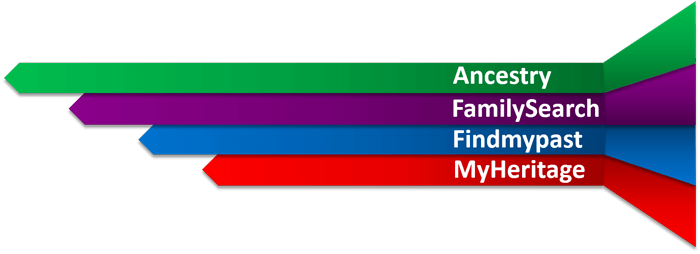
This post is part of our ongoing commitment to help you get the most out of the “Genealogy Giants:”
In this post, I comment on a recent announcement from the free giant everyone should be using: FamilySearch.org.
Why you should have (and use!) a free FamilySearch account
FamilySearch.org has always allowed free public use of its site. But beginning on December 13, 2017, the site will now actively prompt visitors to register for a free FamilySearch account or to log in with their existing accounts. Anyone can continue to search the catalog and user-submitted genealogies, explore over 350,000 digitized books, learn from the Wiki and the learning center, and even view user-contributed photos and stories. But by requesting you to log in, FamilySearch wants to remind you that this is your path to even more free records and services on the site.
Here are my top three reasons to have and use a free FamilySearch account:
1. Access more free historical records on FamilySearch.
We’ve talked a lot in recent months about best strategies for accessing digitized and off-line historical records at FamilySearch. Some of the digitized records on FamilySearch are there courtesy of a partner organization, which may restrict record access to those who log in on the site.
One woman had an “ah-ha” moment of realization after reading FamilySearch’s announcement. She posted in the comments, “Though I have had a free account for some time, I did not realize that FamilySearch was not giving me full access to information in record searches just because I had not logged in. Maybe I need to redo my past searches as a logged-in account holder.”
2. Participate in the global Family Tree.
As I more fully describe in my quick reference guide, Genealogy Giants: Comparing the 4 Major Websites, FamilySearch’s online family tree is different than the tree systems used at the other major family history websites. Instead of creating your own personal tree, you participate in a collaborative, unified family tree of the world. As a logged-in visitor, you can enter your information, then that of your parents and their parents, etc. until you connect to deceased individuals who are already on the tree. (Information about living individuals is always privacy-protected.) Then you may, with other descendants, contribute what you to know to an ancestor’s profile.
Anyone may make changes to these public profiles, which may at times be frustrating. But it also allows for more focused collaboration. This is a great place to see a virtual compilation of others’ research on particular ancestors without having to search others’ personal trees individually, as you do on other sites (remember to look for their source citations and verify what others say). The Family Tree on FamilySearch is also a great place to digitally archive family documents and photos where other researchers may see and appreciate them for free. As you can see in the screenshot below, logging in also helps you see how others have identified the folks you see in your search results:

3. Get customized help.
Those who log in with a free FamilySearch account have access to one-on-one assistance through the website. If you have a question about using the site, accessing records, finding additional records about your ancestors, or even how to understand the records you’re looking at, you can email or call a live support person for help. Your login also sets you up to receive customized alerts and seasonal messages (like “Did you know your ancestor fought in the War of 1812?”) and a dashboard experience with at-a-glance reminders of record hints awaiting your review, where you left off in your last online session, tips about what to do next, and more. Here’s what the dashboard looks like:

How to get (or recover) a free FamilySearch account
See Registering to use FamilySearch.org for information about creating a free account. FamilySearch accounts have always been free and, the site assures us, will continue to be free. You will need to provide your first and last name, a username, a password, and an email or mobile phone number.
According to FamilySearch, your login and other personal information:
- enables collaboration in the Family Tree and Memories areas of the site (you control how much information is shared)
- “allows you to send in-system messages to other users without revealing your personal identity or email address”
- “allows FamilySearch to send you emails and newsletters (you can specify how many emails, if any, you receive)”
- enables communication when you contact their online support team for help
- will not be shared “with any third party without your consent”
If you’ve already got a FamilySearch account but have forgotten your username, click here. If you’ve forgotten your password, click here.
Genealogy Gems Brings You Genealogy Giants
 Each of the “Genealogy Giants” has so much to offer family historians around the world! But it’s hard to keep them straight, compare their top features, and get the most out of them without some inside help. That’s why we published the must-have quick reference guide, Genealogy Giants: Comparing the 4 Major Websites, your personal comparative tour of Ancestry.com, FamilySearch, Findmypast, and MyHeritage.
Each of the “Genealogy Giants” has so much to offer family historians around the world! But it’s hard to keep them straight, compare their top features, and get the most out of them without some inside help. That’s why we published the must-have quick reference guide, Genealogy Giants: Comparing the 4 Major Websites, your personal comparative tour of Ancestry.com, FamilySearch, Findmypast, and MyHeritage.
This inexpensive guide can save you hours of wasted time hunting down the records you need. It can save you hundreds of dollars by helping you invest in the genealogy websites you most need to use right now–because your research needs change right along with your growing family tree! The guide is available for your immediate reference as a digital download or get a handy, high-quality printed copy you can keep with your genealogy research files.
by Lisa Cooke | Oct 20, 2017 | 01 What's New, Records & databases
Millions of records from around the world are new at FamilySearch this week, and are completely free! These new collections include Australia, Denmark, Finland, France, Italy, and South Africa. PERSI also got a big update this week at Findmypast, as well as new and updated records for Canada, England, and Ireland.
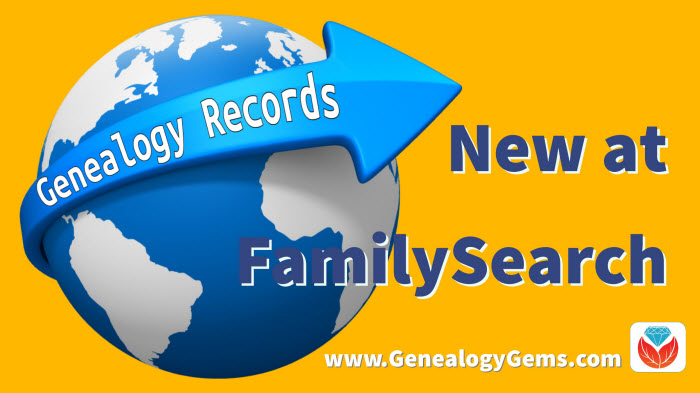
New collections free at FamilySearch
Australia. The new South Australia, Immigrants Ship Papers, 1849-1940 collection includes immigrants’ ships papers, containing a record of births and deaths aboard, 1849-1867 and 1873-1885. Indexed records in this collection include passenger lists arriving and departing from South Australia. (Original records in the State Records of South Australia, Adelaide.) Get started with Australian genealogy research with these tips from an expert at Legacy Tree Genealogists!
Denmark. FamilySearch has been adding census records for Denmark recently, and the latest new collection is the 1921 Denmark Census. This collection includes over 430,000 images, and these census collections were all provided by MyHeritage and previously from the National Archives of Denmark.
Finland. Church Census and Pre-Confirmation Books, 1657-1915: This collection contains church census books and pre-confirmation books kept by the Lutheran Church in Finland. These records come from a database at MyHeritage, citing Kansallisarkisto (National Archives of Finland), Helsinki.
France. Explore over half a million indexed records for Saône-et-Loire, Census, 1856, a complete indexing of the population censuses.
Italy. The Salerno, Civil Registration (State Archive), 1806-1949 collection includes civil registration (stato civile) records of births, marriages, and deaths within the custody of the State Archive of Salerno (Archivio di Stato di Salerno). Almost 6 million images are in this collection, and availability of records is largely dependent on time period and locality.
South Africa. Lastly, this collection of Pietermaritzburg Estate Files 1846-1950 is also new at FamilySearch. Records include death notices, vital records, wills, distribution accounts, and succession duty accounts.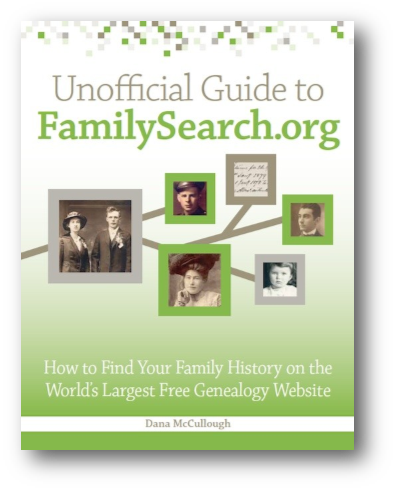
Need help using FamilySearch? The Unofficial Guide to FamilySearch.org by Dana McCullough provides the guidance you need to discover your ancestors and make the most of the free site’s valuable resources. Learn how to maximize all of FamilySearch.org’s research tools–including hard-to-find features–to extend your family tree in America and the old country.
PERSI update at Findmypast
The Periodical Source Index (also known as PERSI) has had another large update at Findmypast. Almost 11,000 new articles and 30,000 new images have been added, covering Pennsylvania, Wyoming, Toronto, and Yorkshire. PERSI is an excellent resource for discovering articles, photos, and other material you probably won’t find using conventional online search methods.
Click here to learn more about PERSI for genealogy research. Genealogy Gems Premium Members can also check out Premium Podcast episode #135 for more tips on PERSI (sign-in required). Not a Premium Member? Click here to get started!
Canada – New & Updated Collections
From Libraries and Archives Canada: Digitization of the Canadian Expeditionary Force Personnel Service Files. “As of today, 502,740 of the 640,000 files are available online in our Personnel Records of the First World War database…Library and Archives Canada is digitizing the service files systematically, from box 1 to box 10686, which roughly corresponds to alphabetical order.”
Ancestry.com updated two of their collections for Canada this week: Ontario, The Ottawa Journal (Birth, Marriage, and Death Notices) 1885-1980 and the Canada Obituary Collection, 1898-2017. Both of these collections come from microfilmed copies of the newspapers.
England Registrations
Recently announced on Twitter: “The General Register Office for England and Wales (GRO) is piloting a service from 12 October 2017 to provide portable document format (PDF) copies of digitized historical birth and death records. The pilot will run for a minimum of 3 months to enable GRO to assess the demand for this service over a prolonged period.” England and Wales records which are available as PDFs in this extended pilot include births (1837 –1916) and deaths (1837 –1957).
Ireland: Historical Newspaper
A new historical newspaper title was added to the British Newspaper Archive this week for Northern Ireland. The Coleraine Chronicle 1844-1910 was published by Alpha Newspaper Group in Coleraine, Londonderry, Northern Ireland. The collection features nearly 3,500 issues and over 26,000 pages.
 Get the most out of your genealogy records websites subscriptions!
Get the most out of your genealogy records websites subscriptions!
Use the jammed-packed Genealogy Giants cheat sheet by Sunny Morton to quickly and easily compare all of the most important features of the four biggest international genealogy records membership websites: Ancestry.com, FamilySearch.org, Findmypast.com, and MyHeritage.com. Then consult it every time your research budget, needs or goals change. Tables, bulleted lists, and graphics make this guide as easy to use as it is informative. Available in print or digital download.
Disclosure: This post contains affiliate links and Genealogy Gems will be compensated if you make a purchase after clicking on these links (at no additional cost to you). Thank you for supporting the free Genealogy Gems podcast and blog!



